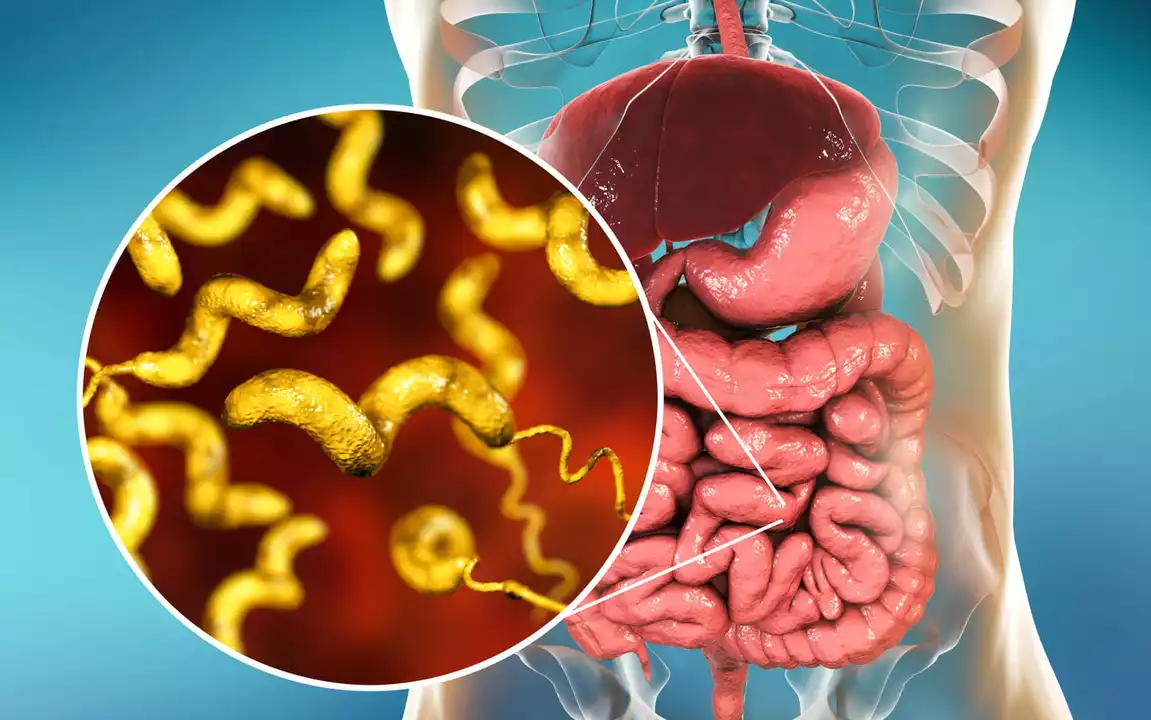Intestinal infections: what causes them and how to handle them
Feeling sick after a meal or with sudden diarrhea and vomiting? That’s an intestinal infection — commonly called a stomach bug or gastroenteritis. A single episode can ruin a few days, but most are manageable at home if you know what to do fast.
Common causes and what to expect
Different germs cause intestinal infections. Viruses like norovirus and rotavirus are frequent culprits. Bacteria such as Salmonella, E. coli, Campylobacter and Clostridioides difficile can cause more severe disease. Parasites like Giardia show up after contaminated water or travel. Symptoms often start suddenly and include watery diarrhea, nausea, vomiting, stomach cramps, and sometimes fever. Blood in stool or very high fever is a red flag.
How long it lasts depends on the germ. Viral infections usually settle in 24–72 hours. Bacterial and parasitic infections can last longer and may need medication.
Simple, practical treatment you can do at home
First rule: replace fluids. Diarrhea and vomiting quickly dehydrate you. Sip oral rehydration solution (ORS) if you can get it. If not, mix a liter of water with six teaspoons sugar and half a teaspoon salt until you can buy ORS.
Avoid sugary sodas and alcohol. Small, frequent sips are easier to keep down than large amounts. Rest and eat bland foods when appetite returns — toast, bananas, rice, plain potatoes. Avoid dairy until you feel better; temporary lactose intolerance is common after infection.
Over-the-counter anti-diarrheal drugs (like loperamide) can help mild cases in adults, but don’t use them if you have high fever or bloody diarrhea — those symptoms need a doctor. Antiemetics can ease severe vomiting but get medical advice first. Antibiotics are only for specific bacterial infections and must be prescribed by a clinician; don’t self-prescribe.
If someone is very young, elderly, pregnant, or has a weakened immune system, call a doctor early. These groups can get dehydrated fast or develop complications.
Testing (stool culture or PCR) may be needed if symptoms are severe, bloody, last more than a few days, or after travel. Tests help your doctor pick the right treatment.
Prevention is simple and effective. Wash hands thoroughly after using the toilet, before preparing food, and after caring for sick people. Cook meats to safe temperatures and avoid raw or unpasteurized dairy. When traveling, drink bottled or boiled water in risky areas and peel fruit yourself. If someone in your home is sick, disinfect surfaces regularly and avoid shared utensils.
Most intestinal infections clear with rest, fluids, and basic care. Know the warning signs — heavy dehydration, persistent high fever, bloody stools, or worsening symptoms — and seek medical help when they appear. Smart prevention and quick home care usually keep a stomach bug from becoming a big problem.

